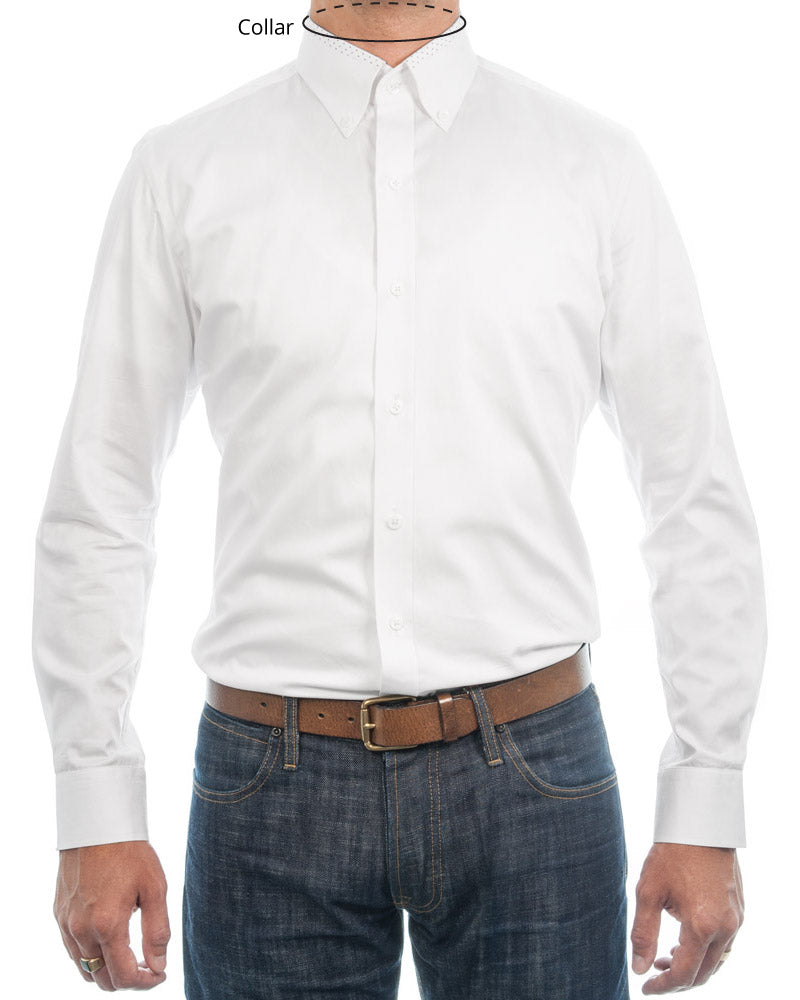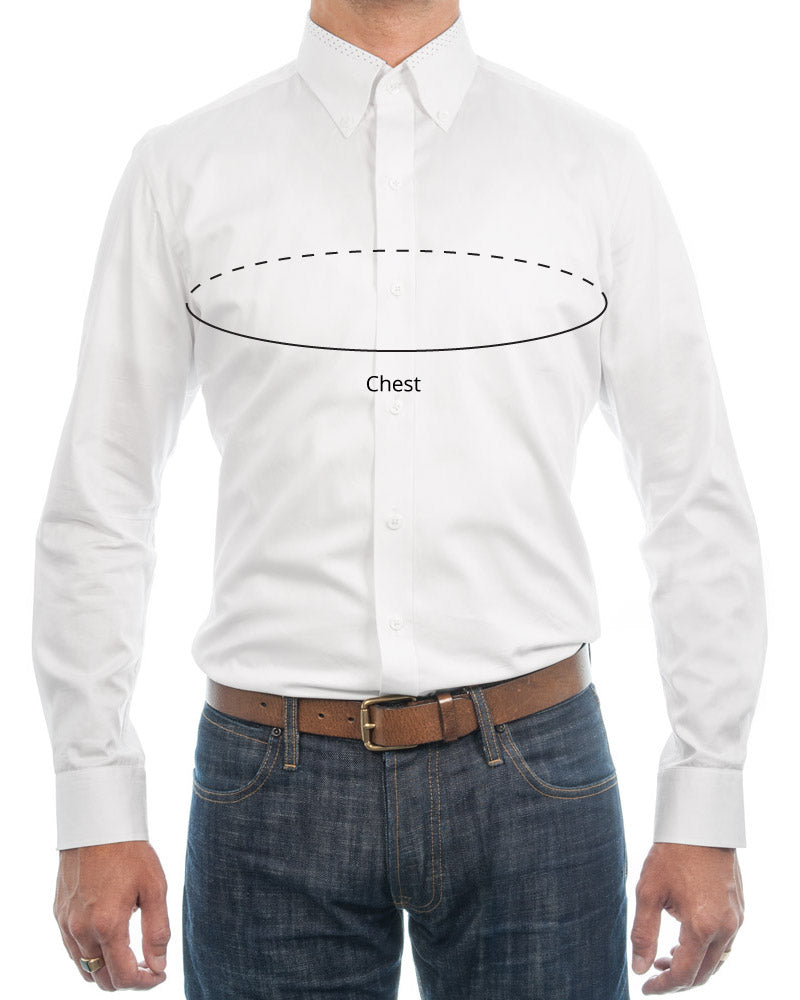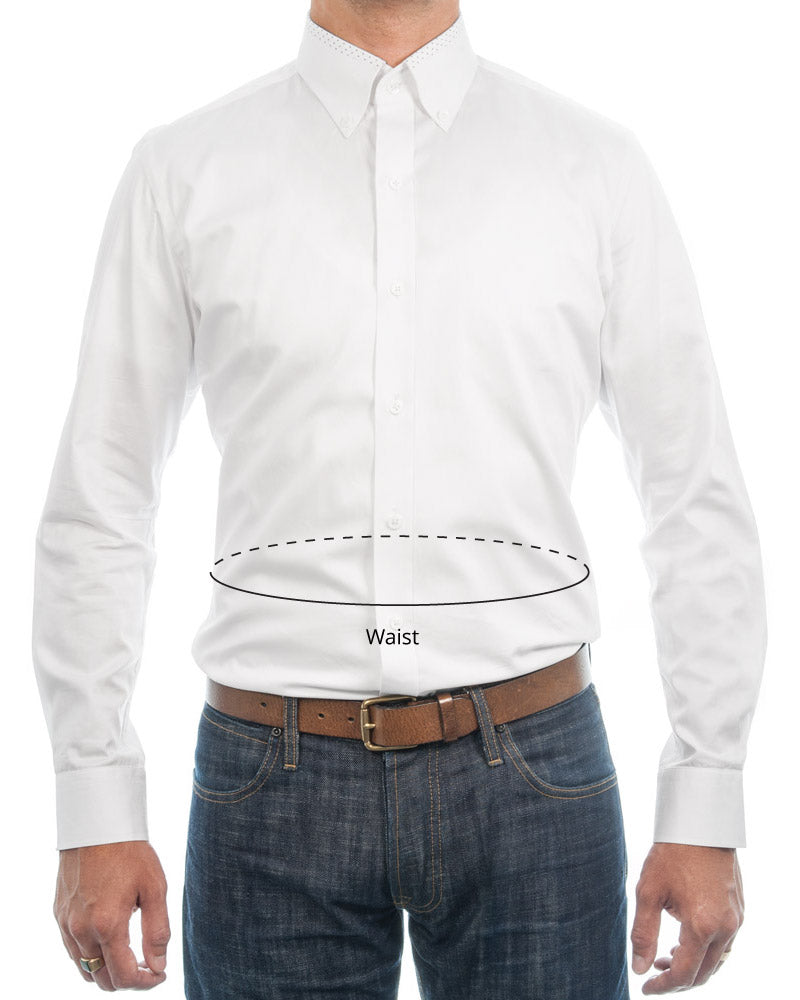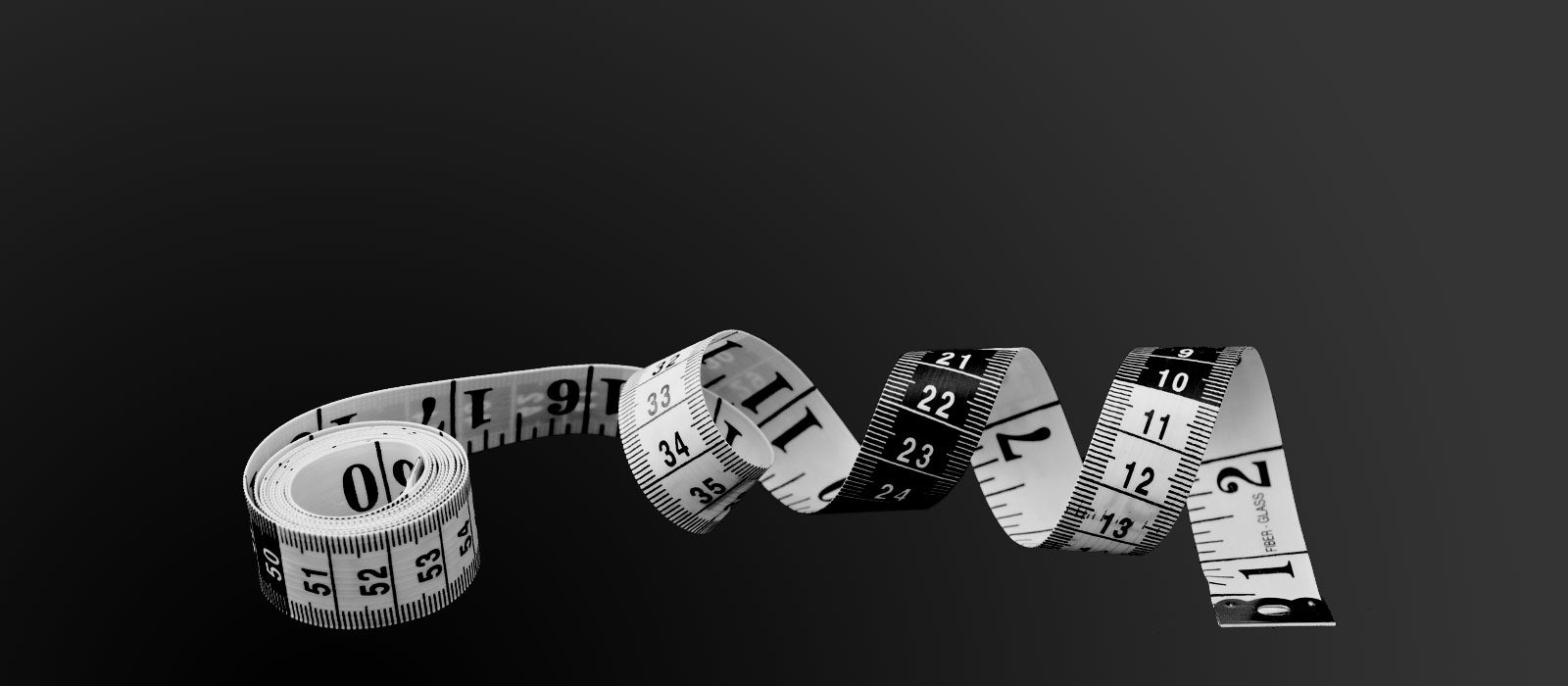The basics of dress shirt measurements are easy
Dress shirt measurements are based on your neck, arm, chest, and waist measurements. Below is a simple guide on how to properly take these critical measurements.
For menswear, companies typically offer shirts in alpha sizing (small, medium, large) or numerical sizing (based on your neck and arm length). The chest and waist measurements are standardized based on neck and arm length in relation to a company’s fit formula.
When taking your body measurements, it is best to use a soft measuring tape (tailor’s tape) since it is the easiest to wrap around your body. Ask a friend to help to take your measurements, or ask your tailor or personal dry cleaner to take your measurements if you are concerned about accuracy.
Pro tip: If you don’t have access to tailor’s tape you can use a piece of string, and then lay the string flat out on a tape measure.
How To Measure Your Collar
Pro tip: Add 1-2 fingers in-between the tape and your neck to ensure space for breathing.

How To Measure Your Sleeve Length

How To Measure Your Chest

How To Measure Your Waist

Now, take the measurements you noted and compare them to the sizes listed in the fit guide size chart. The measurements should roughly match up. Every man's body is slightly different and clothing has ease built-in to allow for movement. Each company adds in a different amount of ease based on their specified fit. Examples of types of fits are: traditional, fitted, slim and extra slim. Fits are a matter of preference to the brand. Our Batch fit is similar to other brand’s slim fit except with a bit more of a tailored cut.
-
XS
X Small
Body Length: 29"
Chest: 39"
Your Sleeve Length: 34"
You should wear Pant Size: 26 - 28" -
S
Small
Body Length: 29"
Chest: 40"
Sleeve Length: 34.5"
You should wear Pant Size: 28 - 30" -
M
Medium
Body Length: 29.5"
Chest: 42"
Sleeve Length: 35"
You should wear Jean Size: 31 - 32" -
L
Large
Body Length: 30"
Chest: 46"
Sleeve Length: 35.75"
You should wear Jean Size: 33 - 35" -
XL
X Large
Body Length: 30.5"
Chest: 50"
Sleeve Length: 36.25"
You should wear Jean Size: 36 - 40" -
XXL
XX Large
Body Length: 30.5"
Chest: 54"
Sleeve Length: 36.75"
You should wear Jean Size: 42 - 46"
Pro tip: Some companies measurements are of the garments, not based on your body measurements. This is where it can get confusing. If this is the case, then their shirts already have ease built-in around the chest and waist so the measurements will seem larger than usual.
DEFINITIONS:
Whats The Difference Between Neck Size vs Collar Size?
Neck size is the measurement around your neck without ease. Collar size has length built-in to it to allow you to breathe, and for the collar to sit on your neck properly. If in doubt, you can instead note the collar size of a shirt that fits well allowing two fingers to still squeeze between your collar and neck.
Whats The Difference Between Arm Length vs Sleeve Length
Arm length is from the top of your arm to your wrist, this measurement starts at the shoulder and is often used for casual shirt sizing. Sleeve length for dress shirts are measured from the center of your back because dress shirts have a loose fitting shoulder and armhole that does not sit on your natural shoulder position. Shirts today are fitted more closely to the body and often the sleeve length could be taken from your arm length; however, the traditional measurement method still prevails in modern menswear. More on measuring sleeve length


